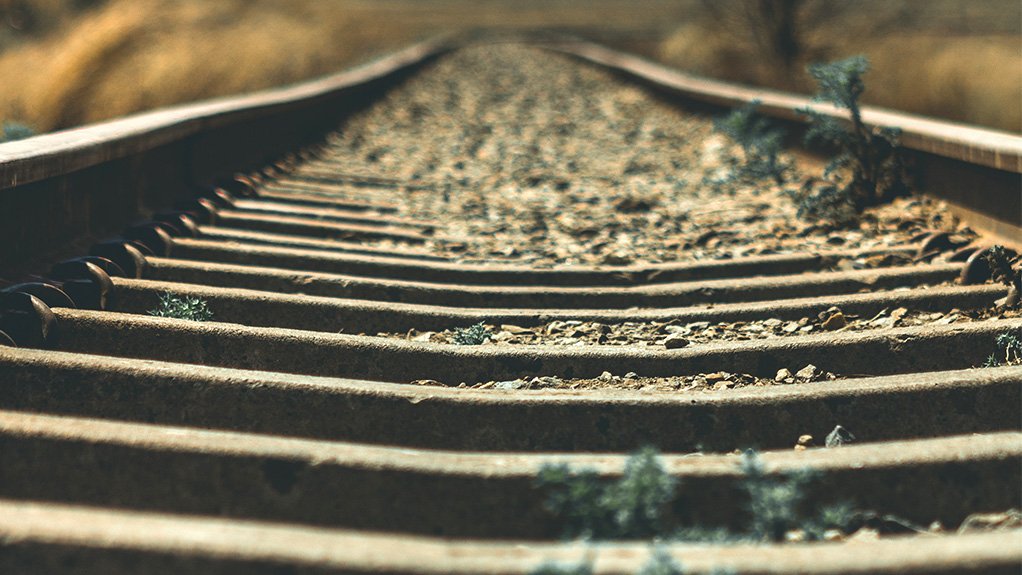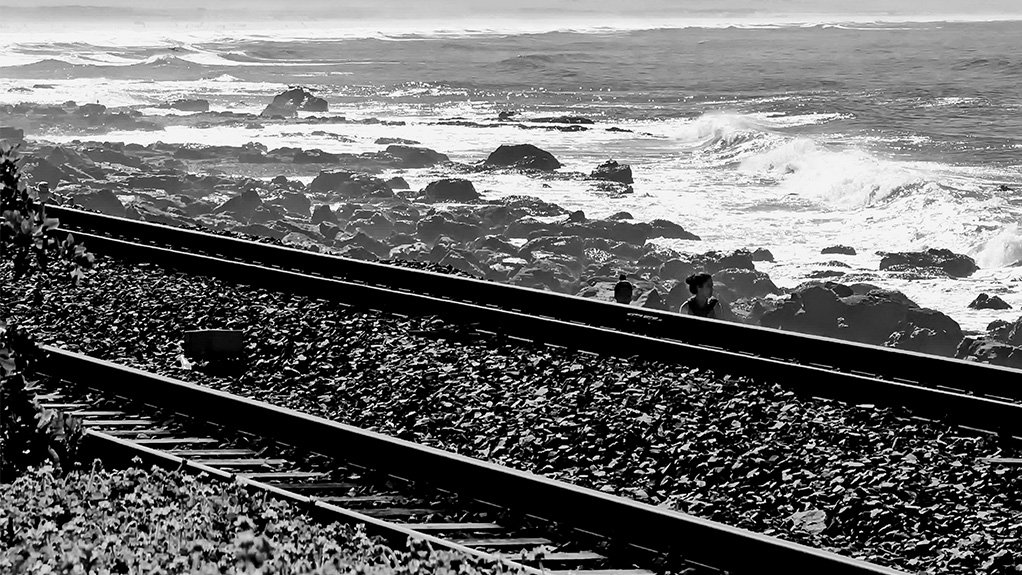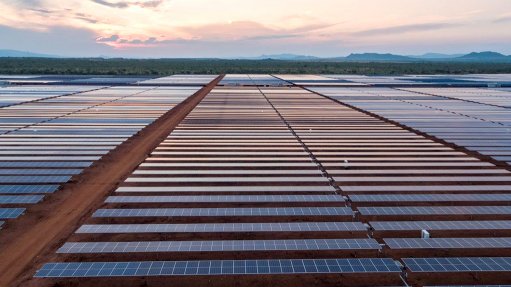Third-party access crucial for sector




MESELA NHLAPO It is in the country’s best interest to successfully advocate for the practical implementation of the third-party access rail policy to service the unserved market that previously benefited from our railways
PLAYING FAVOURITES South Africa’s transport policy has favoured the country’s overburdened road network, while its freight rail infrastructure deteriorates
FOR A BRIGHTER FUTURE It is in South Africa’s best interest to successfully advocate for the practical implementation of the third-party access rail policy
Rail industry representative African Rail Industry Association (ARIA) is driven by a mandate to facilitate public–private partnerships (PPPs) as a tool to revitalise the South African rail industry, with CEO Mesela Kope-Nhlapo declaring 2023 the year of third-party access.
“It is in the country’s best interest to successfully advocate for the practical implementation of the third-party access rail policy to service the unserved market that previously benefited from our railways,” Kope-Nhlapo tells Engineering News.
State-owned entity Transnet Freight Rail (TFR) can haul up to 226.3-million tons, but cannot sustain such volumes over the long term, she explains.
According to the Transnet Integrated Report 2021, TFR’s volumes declined from 212.4- million tons in 2020 to 183.3- million tons in 2021.
Kope-Nhlapo says accelerated investment in the maintenance and restoration of railway infrastructure should be prioritised to improve its condition, which has declined since the 1970s.
Encouragingly, a maintenance project is slated for this year on the railway line linking the North West to the Port of Richards Bay, in KwaZulu-Natal.
Kope-Nhlapo says TFR’s ability to service the mining industry has been flagged as a concern by industry body, the Minerals Council South Africa. The maintenance of the railway line, which was damaged during the 2021/22 floods in the province, should help alleviate capacity concerns by increasing volumes hauled on the KwaZulu-Natal corridor.
The flood damage also left the timber industry with no option but to move volumes from rail to road.
Multinational packaging and paper group Mondi relies on reliable rail service between its sidings to its mill in South Africa, which operates on a 24/7 basis, stresses Kope-Nhlapo.
Various constraints relating to rolling stock, locomotive availability, wagon reliability, operations, infrastructure, communications and planning, siding leases and nonexistent end-of-train and/or telemetry devices, as well as a lack of security, theft and vandalism, have reduced Mondi to only being serviced two to three times a week, she elaborates.
The maintenance of the KwaZulu-Natal corridor should also result in this freight being moved from road to rail.
South Africa’s transport policy has favoured the country’s overburdened road network, while its freight rail infrastructure deteriorates, owing to a lack of maintenance and failure to use efficient systems to monitor infrastructure health, adds Kope-Nhlapo.
“South Africa can maintain good track quality by investing in such systems, and those that can monitor the load carried on the country’s railway tracks. Establishing an independent body to perform oversight on the efficient use of infrastructure is also key.”
The country’s rail infrastructure is where it is owing to the practices of the governing organisation, State-owned rail company Transnet, she emphasises.
“Industry reforms aimed at improving the competitiveness, efficiency and productivity of the industry, as well as promoting fair competition and consumer protection, are needed to liberate the rail industry. “PPPs are the first step to ensure competition to efficiently service market demand.”
If Transnet fails to enter effective PPPs and continues to nurture a monopolistic industry, consumers will face inflated prices and limited choice in terms of suppliers.
A lack of innovation will also continue, as will the inefficient allocation of resources, decreasing or lack of competitiveness, and inequality in the distribution of wealth.
“These are just a few problems, but what scares us the most is that the industry is easily susceptible to State capture. If the industry is left in the hands of a single organisation, any hostile takeover of the organisation will leave the industry exposed to capitalistic behaviours,” states Kope-Nhlapo.
“She stresses that a few reforms are needed, including reworking the regulation of the local rail industry, whose monopolistic state has extended to the laws that govern it.
“The National Rail Policy White Paper is an important document for shaping of our emerging railways. “The introduction or amendments and regulations that help liberalise the market promote fair competition, prevent anticompetitive behaviour, protect consumer interests and improve efficiency.”
The Backbone of SA’s Ecoomy
ARIA views the South African mining sector as the backbone of the economy and a major contributor to the gross domestic product. However, the near-collapse of the TFR network is an existential threat to the mining sector.
“Mining production has slumped by 9% year-on-year and the mining industry lost an estimated R33-billion in exports, owing to logistical and energy constraints, over the past year,” says Kope-Nhlapo.
In December last year, Minerals Council South Africa and Transnet announced the establishment of joint collaborative structures such as an oversight panel and Ea recovery steering committee.
“A strategic partnership of such significance was long overdue. The mining sector places heavy reliance on the rail for the transportation of its goods. “As TFR’s performance cor relates to that of the mines, strategic partnerships are important to help our railways become more efficient, as it will be geared to supporting its customers. “Therefore, the forestry industry and the automotive sector, to name a few, should also have similar oversight panels and recovery steering committee.”
Kope-Nhlapo expects such partnerships to ensure these sectors benefit from increased efficiency, improved supply chain management, increased competitiveness, and better customer service.
There will come a time when the country’s road infrastructure, which has helped to address declining rail freight capacity, will not be able to withstand the pressure created by ineffective rail infrastructure.
Comments
Press Office
Announcements
What's On
Subscribe to improve your user experience...
Option 1 (equivalent of R125 a month):
Receive a weekly copy of Creamer Media's Engineering News & Mining Weekly magazine
(print copy for those in South Africa and e-magazine for those outside of South Africa)
Receive daily email newsletters
Access to full search results
Access archive of magazine back copies
Access to Projects in Progress
Access to ONE Research Report of your choice in PDF format
Option 2 (equivalent of R375 a month):
All benefits from Option 1
PLUS
Access to Creamer Media's Research Channel Africa for ALL Research Reports, in PDF format, on various industrial and mining sectors
including Electricity; Water; Energy Transition; Hydrogen; Roads, Rail and Ports; Coal; Gold; Platinum; Battery Metals; etc.
Already a subscriber?
Forgotten your password?
Receive weekly copy of Creamer Media's Engineering News & Mining Weekly magazine (print copy for those in South Africa and e-magazine for those outside of South Africa)
➕
Recieve daily email newsletters
➕
Access to full search results
➕
Access archive of magazine back copies
➕
Access to Projects in Progress
➕
Access to ONE Research Report of your choice in PDF format
RESEARCH CHANNEL AFRICA
R4500 (equivalent of R375 a month)
SUBSCRIBEAll benefits from Option 1
➕
Access to Creamer Media's Research Channel Africa for ALL Research Reports on various industrial and mining sectors, in PDF format, including on:
Electricity
➕
Water
➕
Energy Transition
➕
Hydrogen
➕
Roads, Rail and Ports
➕
Coal
➕
Gold
➕
Platinum
➕
Battery Metals
➕
etc.
Receive all benefits from Option 1 or Option 2 delivered to numerous people at your company
➕
Multiple User names and Passwords for simultaneous log-ins
➕
Intranet integration access to all in your organisation





















